Advanced Waterproofing Techniques for Structural Integrity
Waterproofing is a critical component in protecting structures from water intrusion, which can lead to structural damage, mold growth, and decreased property value. Proper waterproofing ensures that buildings remain dry and secure, especially in areas prone to moisture exposure such as basements, roofs, and foundations. Advances in waterproofing technology have increased the durability and effectiveness of these systems, making them essential for long-term property preservation.
Foundation waterproofing involves applying specialized membranes or coatings to prevent water seepage through basement walls and floors, safeguarding the structural integrity of a building.
Roof waterproofing protects flat or low-slope roofs from water penetration, extending roof lifespan and preventing leaks that can cause interior damage.
Wall waterproofing techniques are used to shield exterior and interior walls from moisture, reducing the risk of mold and deterioration.
These membranes act as a barrier against water infiltration and are often used in foundation and roofing applications for enhanced protection.
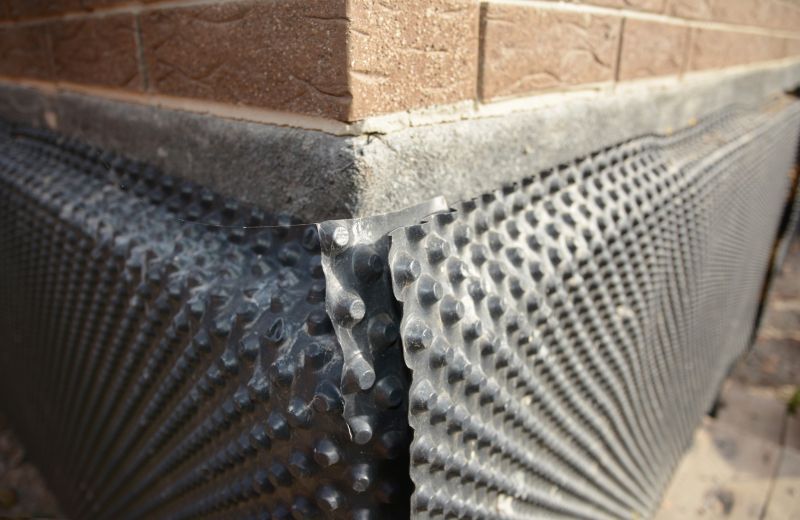
A professional applying waterproofing membrane to a building foundation demonstrates the precision required for effective water barrier application.
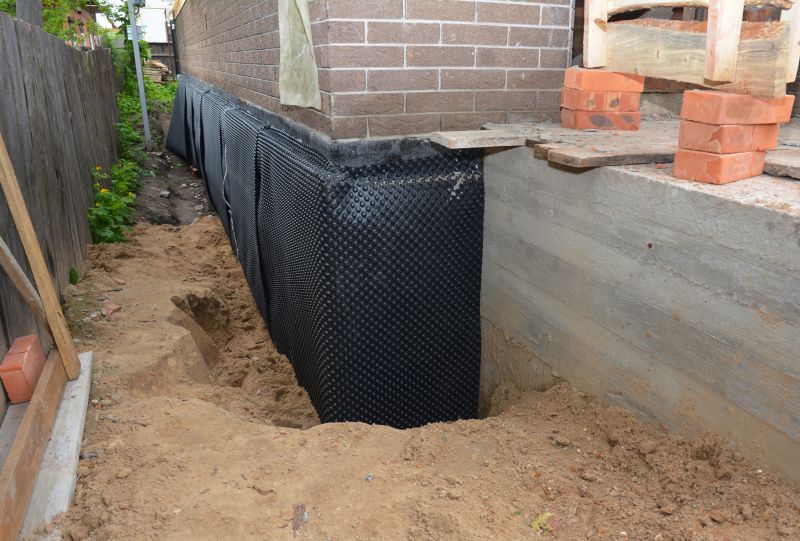
Finished waterproofing work on a basement exterior showcases the durable seal that prevents water entry and protects structural integrity.
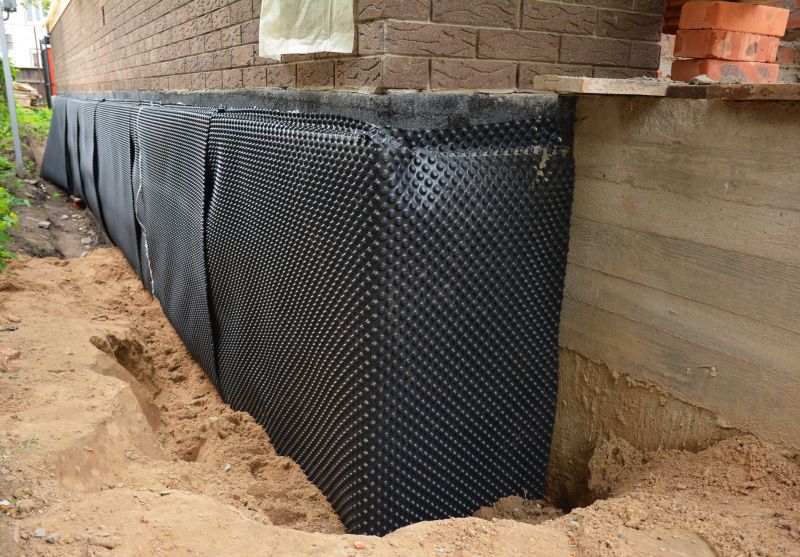
Various waterproofing materials including membranes, coatings, and sealants are used to tailor solutions for different structural needs.
The process of waterproofing typically involves an initial assessment to identify vulnerable areas, followed by surface preparation and the application of appropriate waterproofing systems. Depending on the scope, a professional can complete a waterproofing project within one to several days, ensuring minimal disruption. Proper surface preparation and correct application are vital for long-lasting results, which is why hiring experienced professionals is recommended to ensure the integrity of the waterproofing system.
Professionals utilize specialized tools and techniques to ensure seamless coverage and effective water resistance. The process may include cleaning surfaces, repairing cracks, applying primers, and then installing membranes or coatings. The durability of waterproofing systems depends on proper installation, which can significantly extend the lifespan of the protected structure and reduce future repair costs.
Hiring experienced technicians ensures that waterproofing systems are correctly installed, reducing the risk of future leaks and structural damage. Professional work provides peace of mind through reliable application and adherence to industry standards.
Experts can accurately assess the specific needs of a property, recommend suitable waterproofing methods, and guarantee proper application, which enhances the longevity and effectiveness of the system.
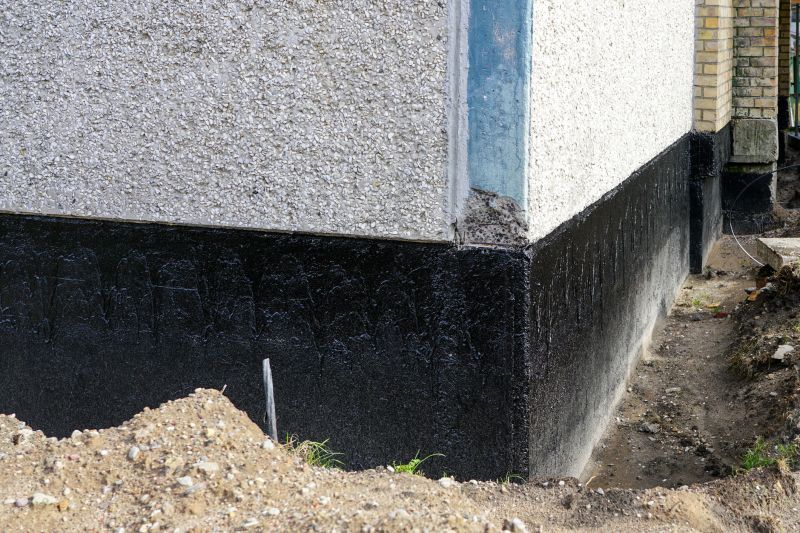
A completed waterproofing project on a building exterior highlights the clean, sealed surface designed to prevent water infiltration.
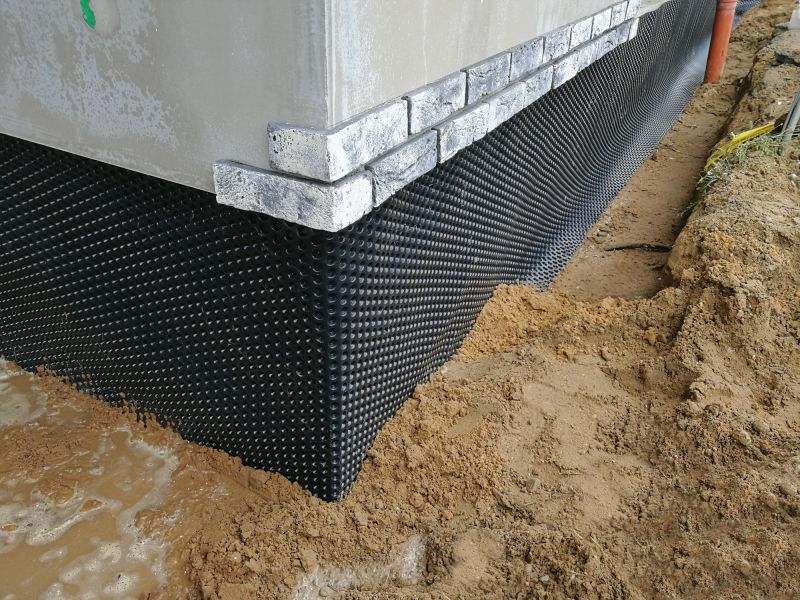
Various high-quality materials such as liquid coatings, membranes, and sealants are shown, illustrating the range of options available for different applications.
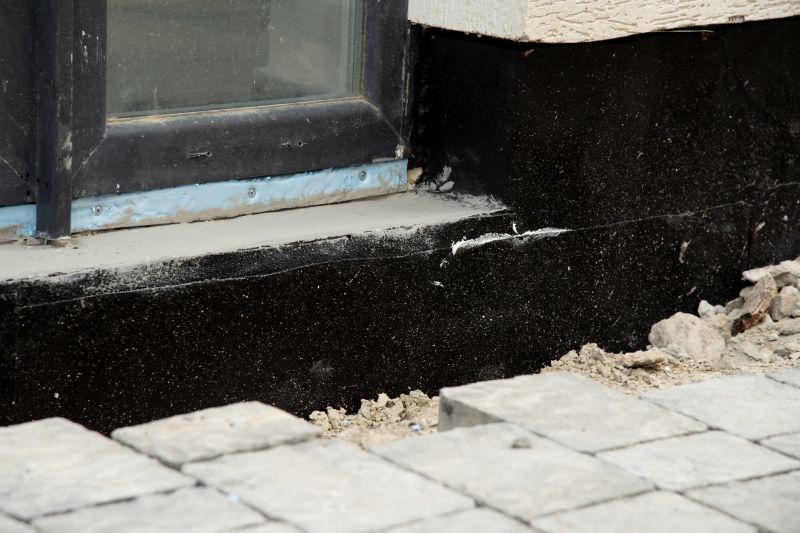
A technician applies a waterproof coating to a foundation wall, demonstrating the meticulous process involved in professional waterproofing.
Effective waterproofing plays a vital role in maintaining the structural integrity and value of a property. Properly installed systems prevent water-related issues that can lead to costly repairs and health concerns. Regular inspections and maintenance of waterproofing systems can help identify potential vulnerabilities early, ensuring ongoing protection.
Property owners in Allendale, MI, seeking to safeguard their structures from water damage are encouraged to consider professional waterproofing services. Contacting experienced specialists can provide tailored solutions that meet specific building requirements, ensuring long-term durability and peace of mind.


